Improving spelling skills Writing Worksheets for Ages 6-8
6 filtered results
-
From - To
Enhance your child's spelling skills with our engaging writing worksheets designed for ages 6-8! At Kids Academy, we understand the importance of foundational literacy, and our resources are crafted to make learning fun and effective. These worksheets focus on phonics, sight words, and vocabulary, while providing varied activities such as fill-in-the-blank and word sorting. As children complete these activities, they’ll build confidence in their writing and spelling abilities. Encourage your budding wordsmith to master essential language skills through interactive, colorful exercises that ignite a love for learning. Explore our collection and watch your child's literacy flourish!
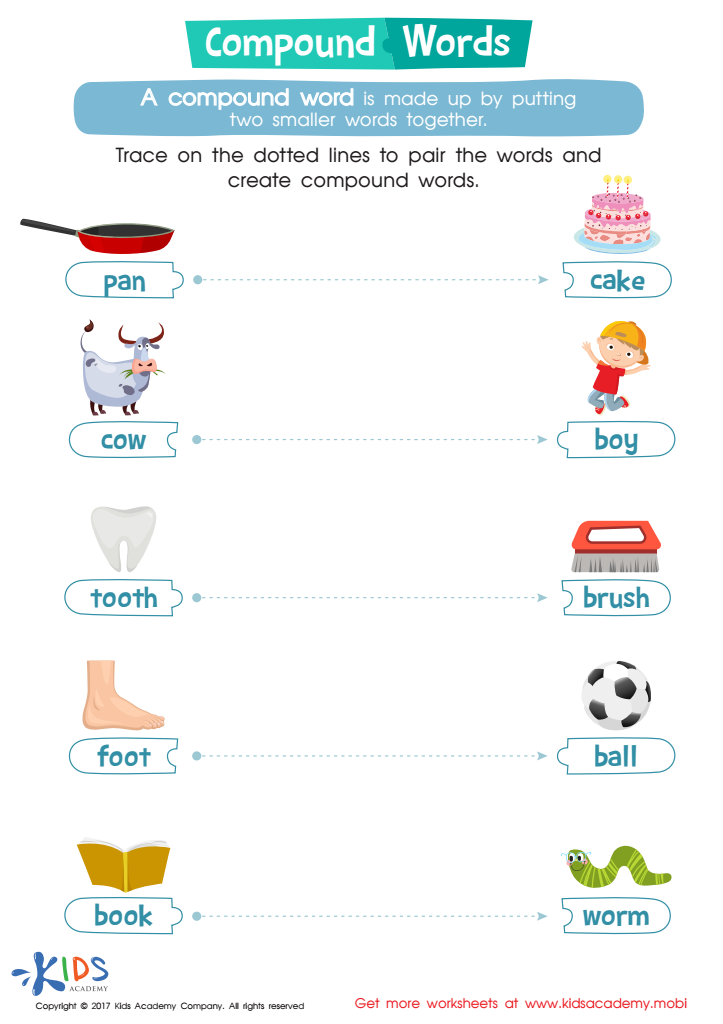

Compound Words Word Structure Worksheet
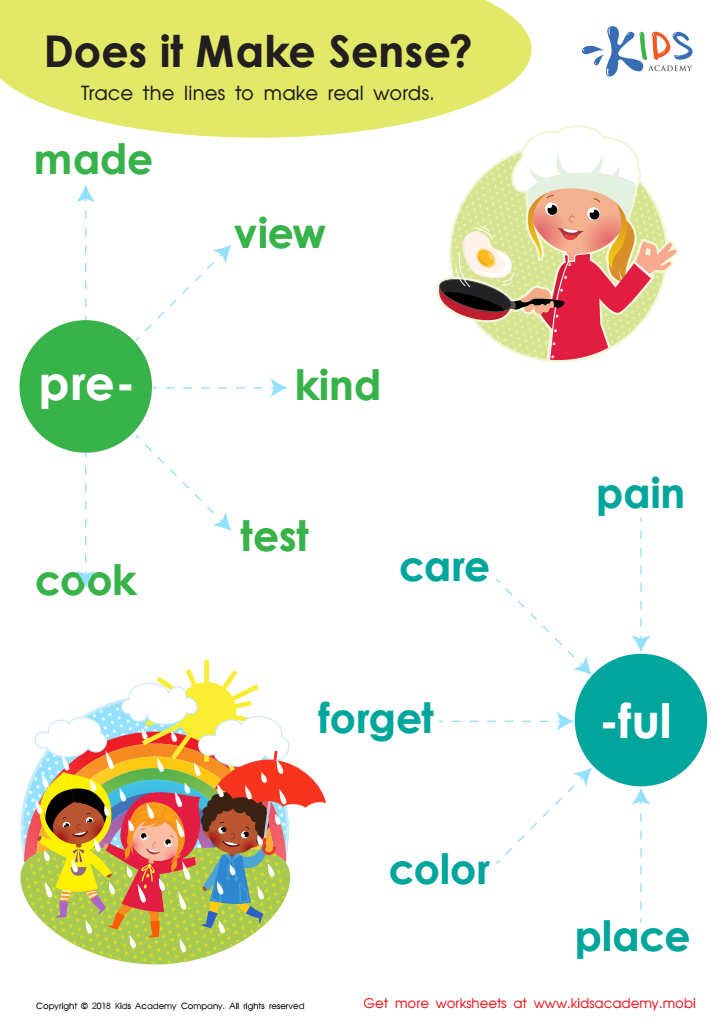

Prefix pre– and Suffix ful– Worksheet
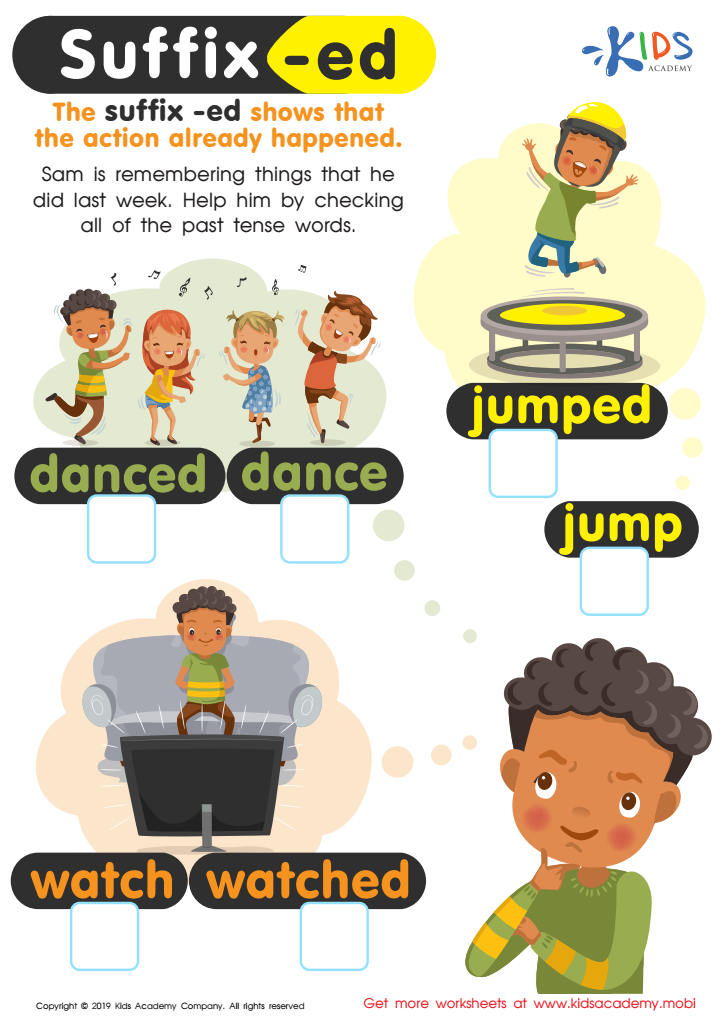

Suffix-ed Worksheet
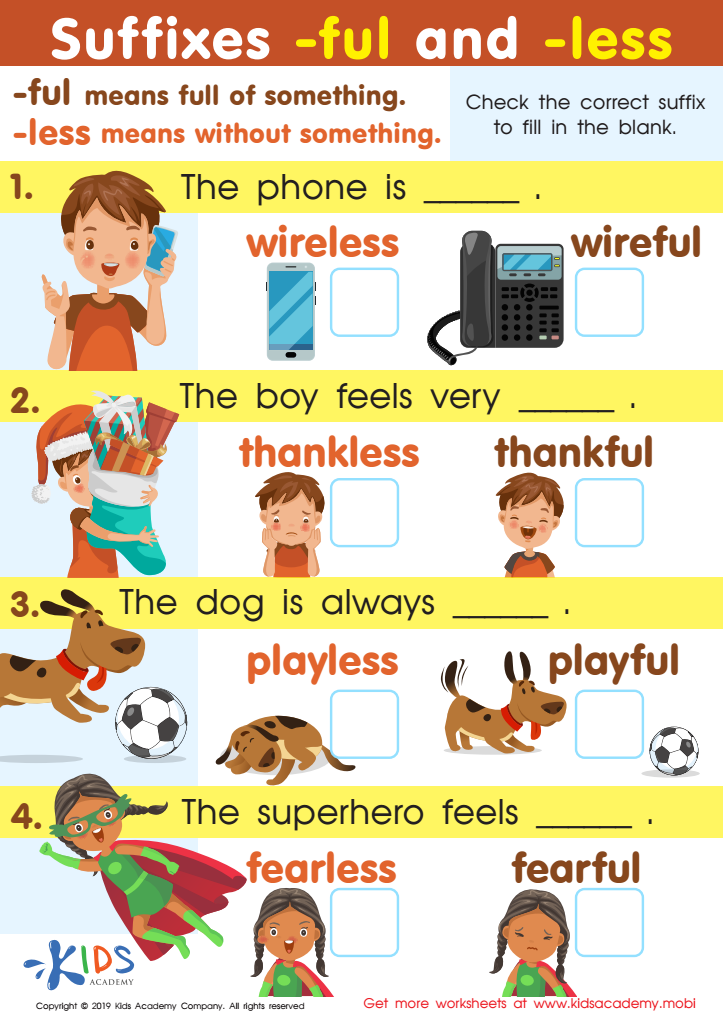

Suffixes –ful and –less Worksheet
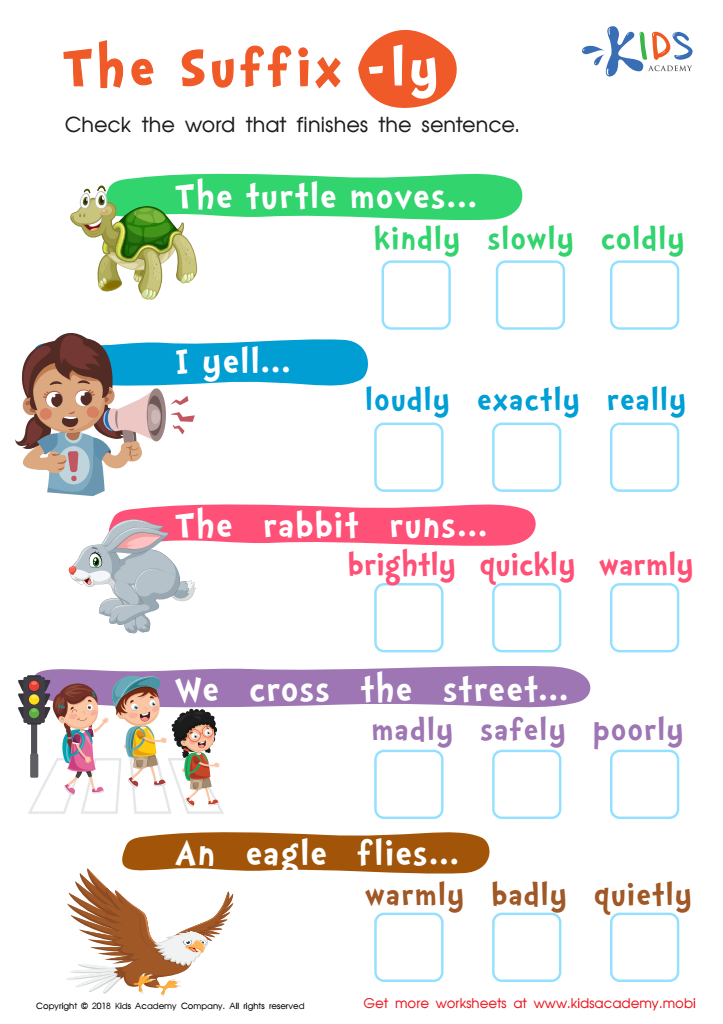

The Suffix -Ly Worksheet
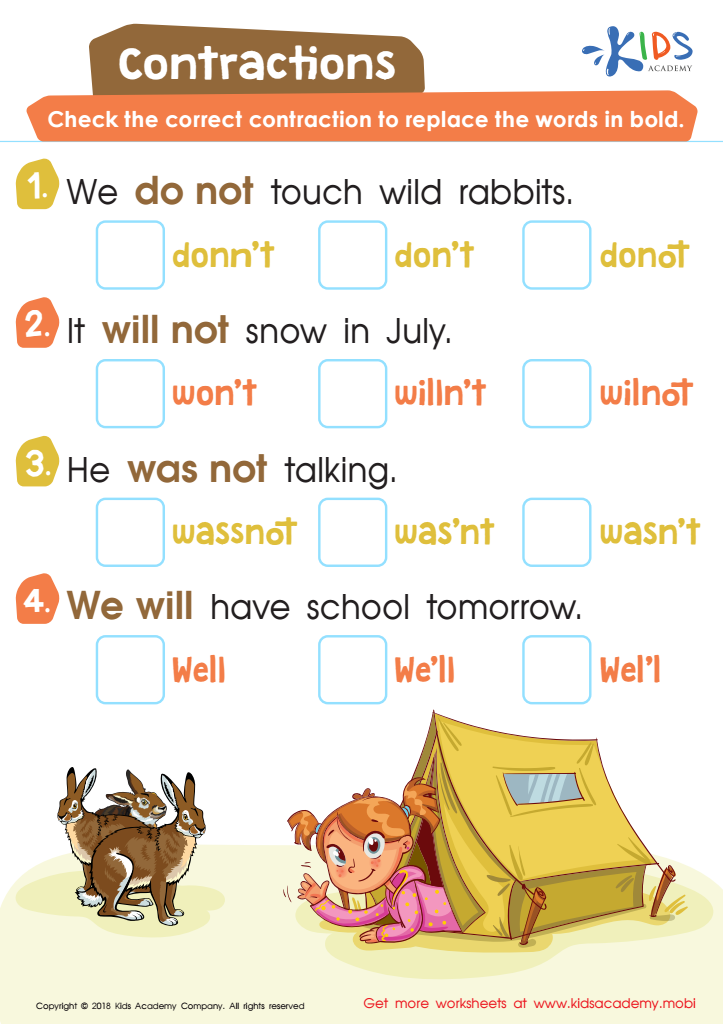

Contractions Worksheet
Improving spelling skills is crucial for children aged 6-8 as it lays the foundation for their overall literacy development. At this age, children are not only learning to read but also beginning to write independently. Mastery of spelling enables them to express their thoughts and ideas clearly, enhancing their communication skills. When children spell words correctly, it boosts their confidence in writing, encouraging them to explore their creativity and share their stories.
Additionally, strong spelling skills support reading development. As children encounter new words, recognition of their correct spelling aids in decoding and comprehension. This interconnection fosters a love for reading and promotes a richer vocabulary.
For parents and teachers, implementing engaging spelling practices—such as interactive games, writing exercises, and daily vocabulary lessons—can make learning fun and less daunting. Moreover, providing positive feedback and celebrating progress encourages persistence and effort.
Child’s strong spelling ability not only impacts academic success but also prepares them for future educational challenges. In a world where written communication is paramount, nurturing excellent spelling skills is an essential component of equipping children for success in both their academic and personal lives.
 Assign to My Students
Assign to My Students

















